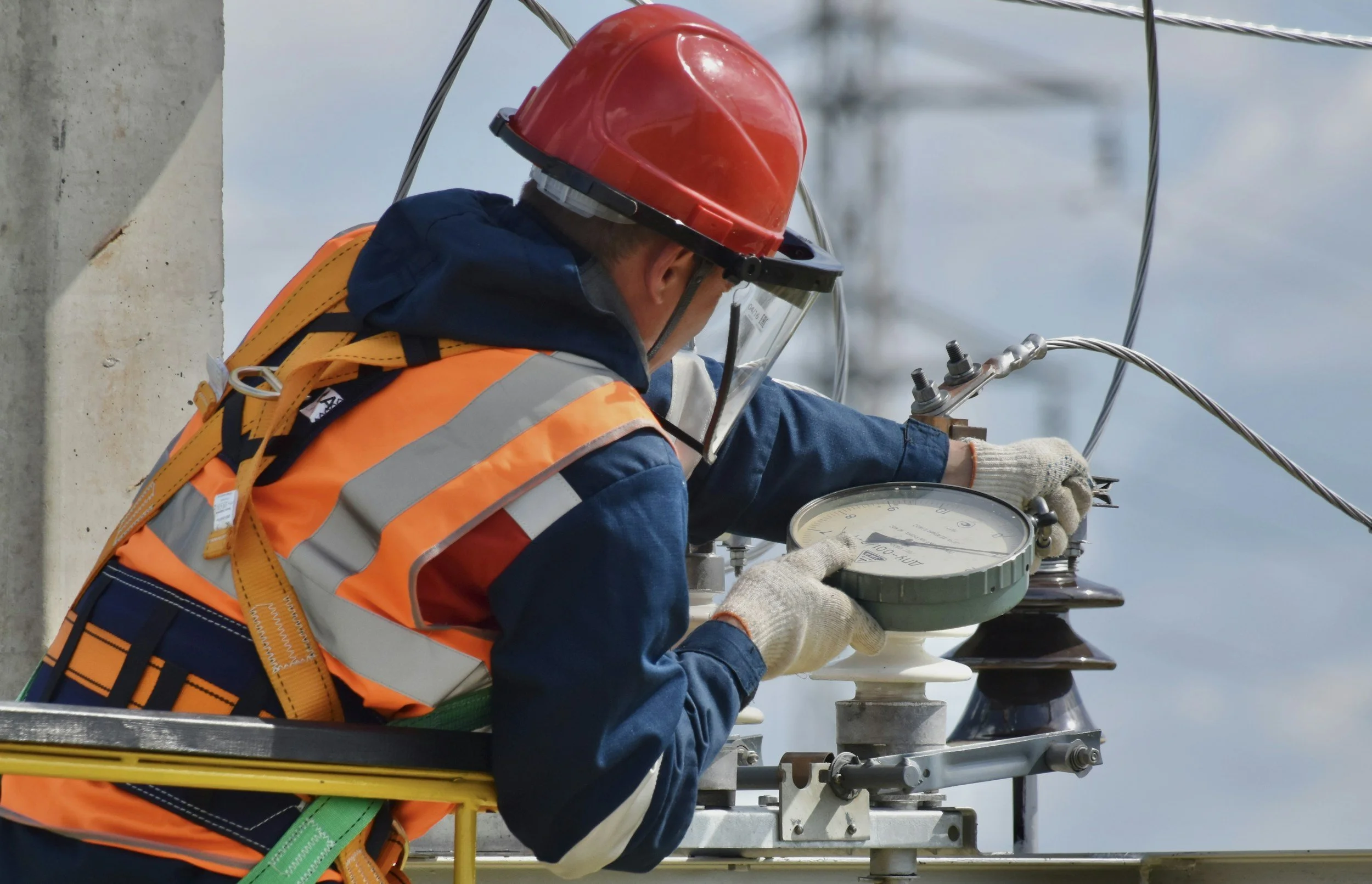
Commissioning Technician
This page gives you the real story about what it's like to be a Commissioning Technician (with insights from someone who’s actually doing the job).
Your goal: Decide if this sounds interesting enough to explore further, or if it's clearly not for you. Both answers are useful!
If it sounds like something you'd like to know more about, you'll be able to:
📞 Join a call - An online call where you can ask your own questions and hear more about what the job's really like
It will take about 5 minutes to read through - by the end, you'll know if this is worth exploring or if you should look at something else.
What do they do?
A commissioning technician tests and checks electrical systems to make sure everything works properly before it's switched on and connected to the grid.
After installation teams have wired up substations and electrical equipment, commissioning technicians come in to run tests, take measurements, and prove that all the systems function correctly and safely. They check protection systems work as they should, test circuits, and fix any problems they find.
Think of it as being the person who makes absolutely certain that new electrical infrastructure is safe and working properly before anyone flicks the switch.
How much do they earn?
Salaries vary depending on the company, location, and your experience level. Here's a rough guide for commissioning technician roles:
Apprentice (Modern/Graduate Apprenticeship) £18,000 - £25,000 per year
You're learning on the job while earning
Uni Graduate £25,000 - £32,000 per year
With Experience £35,000 - £50,000 per year
Senior Level (Commissioning Engineer) £55,000 - £75,000+ per year
What affects your salary:
The size of the company you work for
Whether you're in a city (usually higher) or a smaller town
The specific sector you're in (energy, utilities, manufacturing)
Additional qualifications and progression to commissioning engineer level
Remember: These are approximate figures for Scotland and can vary. The good news is there's clear progression as you gain experience.
You enjoy problem solving and fault finding
When something isn't working right, you want to figure out why. You're systematic in how you approach problems - checking one thing at a time rather than rushing in. Whether it takes 20 minutes or two weeks to solve, you stick with it.
You'll Be Successful In This Career If...
You want to understand how things work
You're not satisfied just following steps - you want to know why you're doing something and what's happening behind the scenes. You're curious about the theory behind electrical systems, not just the practical side.
You can handle working away from home
Projects move around, so you might be working in different locations across Scotland or further away. You're comfortable staying in provided accommodation for weeks or months at a time while a job gets finished.
You're precise and careful with details
You understand this work is safety-critical. You're the last check before systems get energised, so you take your time to make sure measurements are accurate and nothing gets missed.
You're comfortable being hands-on
You like a mix of practical work and technical tasks. Some days you're wiring and fixing things on site, other days you're running tests on a computer. That variety appeals to you rather than doing the same thing every day
The Bottom Line
If you enjoy solving technical problems, are careful with safety-critical work, and like a mix of hands-on and computer-based tasks, then this is a good fit for you. Every new piece of electrical infrastructure needs commissioning technicians, and with experience you'll get real responsibility and strong pay.
Meet Stuart – Commissioning Technician at Siemens
Stuart is in his final year of apprenticeship, working on substations across Scotland testing and commissioning electrical systems before they connect to the grid.
What the job actually involves
“The installation team will come and wire a whole substation. Then we go and test and check, see everything's correct, make sure everything's functioning correctly before it's eventually connected to the grid."
"My job is to assist and help the commissioning engineer. You're helping them where they've got the expertise, learning off them. You do loads of things really. It's quite hands-on some of it, some of it's like computer-based."
Why he likes it
"I like it because it's a mixture of hands-on as well as computer-based stuff. I quite like it when it's a good mix between both worlds."
"The main thing is the problem solving. That's why I like it the most. It does feel like you're overcoming challenges every day. You feel like you're getting pushed every day, instead of just turning up to work and doing 8 hours and then going home."
Why he chose this path
"I originally started my apprenticeship in projects - that was in the office and stuff. It wasn't for me sitting behind a desk the whole time."
"I went up to the Shetlands to help with some commissioning work and I realised - I'm really enjoying this. So I contacted my boss to say is there any chance I can move over."
His best advice
"Definitely read up on electrical knowledge. Make sure you're up to scratch with just even the easiest things - what's voltage, what's current. It'll make it a lot easier."
“What Does A Typical Day Look Like?”
Where he works:
“On substations and electrical sites around Scotland. I'm in Inverness at the moment working on a substation. Siemens is a massive company who have loads of different sites, so you move around. I've been to the Shetlands, Fife - loads of jobs everywhere."
"You get the option to stay in hotels or Siemens provides flats. I've got my own flat here and I've had it for about a year. I like being able to cook and have my own space."
What he’s actually doing:
"There's loads of different tests you can do. You're measuring resistance, checking protection schemes work the way they're meant to work, and proving the scheme doesn't work in another way. Your day can be completely different because there's so much to it."
Breaking that down more specifically:
Running tests on circuit breakers, protection systems, and switchgear
Taking measurements to check resistance, voltage, and other electrical values
Fixing wiring issues or design problems found during testing
Working with multimeters, testing equipment, and laptops
Problem solving when systems don't function as expected
Crimping, wiring, and doing hands-on electrical work when needed
The Summary
Many sectors (energy, utilities, manufacturing, transport, infrastructure, construction and more) need commissioning technicians to test and prove that new electrical systems work safely before they go live.
So if you enjoy problem solving and fault finding, are careful with safety-critical work, and like a mix of hands-on and technical tasks on site, then commissioning gives you the chance to turn your abilities into a well-paid and satisfying career.
Sign up for the ‘Insight Call’
A short online session (30 mins) where you can:
Hear from Stuart about the role
Find out what they really do day to day
Ask your own questions about routes in, pay, progression and lifestyle
Decide if you want to explore the role further
Wednesday 17th December at 16:30








